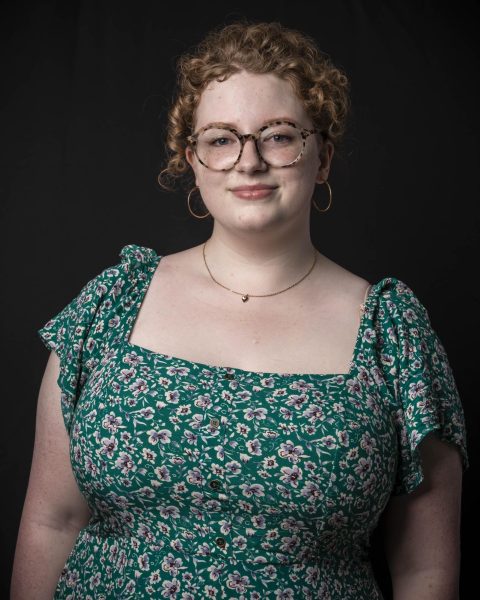Students will begin to register on Monday, April 22 but were able to start viewing the Fall 2024 schedule this week.
Anticipating a lower enrollment of about 1,000 students next fall, the college cut 304 class sections for the next academic year. The cuts represent approximately five fewer sections per program, according to the college.
Students received staggered registration times for next week based on how many credits they had earned. Registration was originally supposed to begin April 1, as the Chronicle previously reported, but was postponed so the schedule could be changed to address lower enrollment targets.
“I did notice that there weren’t that many offerings of different classes that I previously saw,” said Mahlia Schneck, a junior photography major.
The Chronicle compared courses in several different departments.
In Fall 2023, the course “Social Media and Digital Strategies” in the Communication Department offered 94 seats across four class sections. This Fall the class will have 90 seats across three sections.
The Art | Design Department is only offering one section of “Publication Design” in Fall 2024, with a course cap of 20 students. In Fall 2023, it offered two sections, with 20 seats each. In Fall 2024, there also is one less section of “Programming I” than there was in Fall 2023.
Since she will be a senior in the fall, Schneck has a priority for registration and will have a better chance at getting the classes she wants before they are full.
“I am worried for other people especially because there are so many limited offerings for classes,” she said.
Not every course was affected by course caps being increased or fewer sections being offered. In the Photography Department, “Principles of Light” had four sections in Fall 2023 with the course cap at 14. The same is being offered for Fall 2024.
Sophomore film and television major Dorian Rogers said he is worried about going into registration because last semester, he wasn’t able to enroll in some of the required classes that were full by the time he was able to register.
“I haven’t taken some of those important classes for that reason, so it’s kind of frustrating going into my junior year and not really knowing if I’ll be able to take those classes until way later.”
In the Cinema and Television Arts department, the course “Editing I” has five sections for Fall 2024 compared to six sections in Fall 2023. The course caps were also increased from 14 seats per section to 20.
In an email to faculty and staff on Thursday, April 18, Senior Vice President and Provost Marcella David said students should have confidence in the schedule.
“We do not plan to make any changes to the schedule beyond those typical for our registration period, adding or removing sections to adjust to student demand or individual instructor availability,” she said.
President and CEO Kwang-Wu Kim’s draft advisory report outlines his proposals to remedy the college’s $38 million deficit, which include reducing the core Liberal Arts and Sciences requirement from 42 credits to 30.
Director of Academic Advising Keith Lusson said that even if core requirements are reduced, the number of credits required for the completion of a degree will remain the same, which is 120 credits for a Bachelor of Arts degree and 128 credits for a Bachelor of Fine Arts or Bachelor of Music degree.
In her email, David also addressed this.
“Students will hear more about the implementation of any changes to the core over the summer, with ample time to update their fall course selection if desired,” she said.
Academic advisors will be available to help students who have any questions or issues related to registration.
All advisors will be doing three-hour daily Zoom drop-in advising every day during registration, Lusson said. “This, in addition to individual appointments.”
Additionally, RegFest was held at the Student Center on April 9 and April 10 to help students prepare for registration before the offerings were released.
This semester, Schneck scheduled an appointment with her advisor ahead of time instead of using the drop-in advising sessions.
“The drop-ins are a little stressful,” Schneck said. “You don’t know how long you’ll wait and if you’re doing it in between classes, those times can be stressful.”
Schneck said she has gone to an advisor for help with registration in the past but doesn’t feel a connection to her advisor.
“I’ve had, I think, like three or four different advisors since being here, in three years, so that’s kind of frustrating.”
Rogers said that he is not planning on meeting with an advisor and didn’t when he registered in the past.
“I know that sometimes advisors will give advice and they kind of want you to stick to that, but I was really wanting to just kind of explore what Columbia had to offer and just kind of do my own thing,” he said.
Schneck typically uses her degree audit to keep track of her program requirements and decide which classes to register for on her own.
Rogers also uses the audit to register on his own but said that in the past, it didn’t provide all of his options for earning credit toward his major.
“I think the audit is very useful, but you can also shoot yourself in the foot by using it sometimes,” he said.









